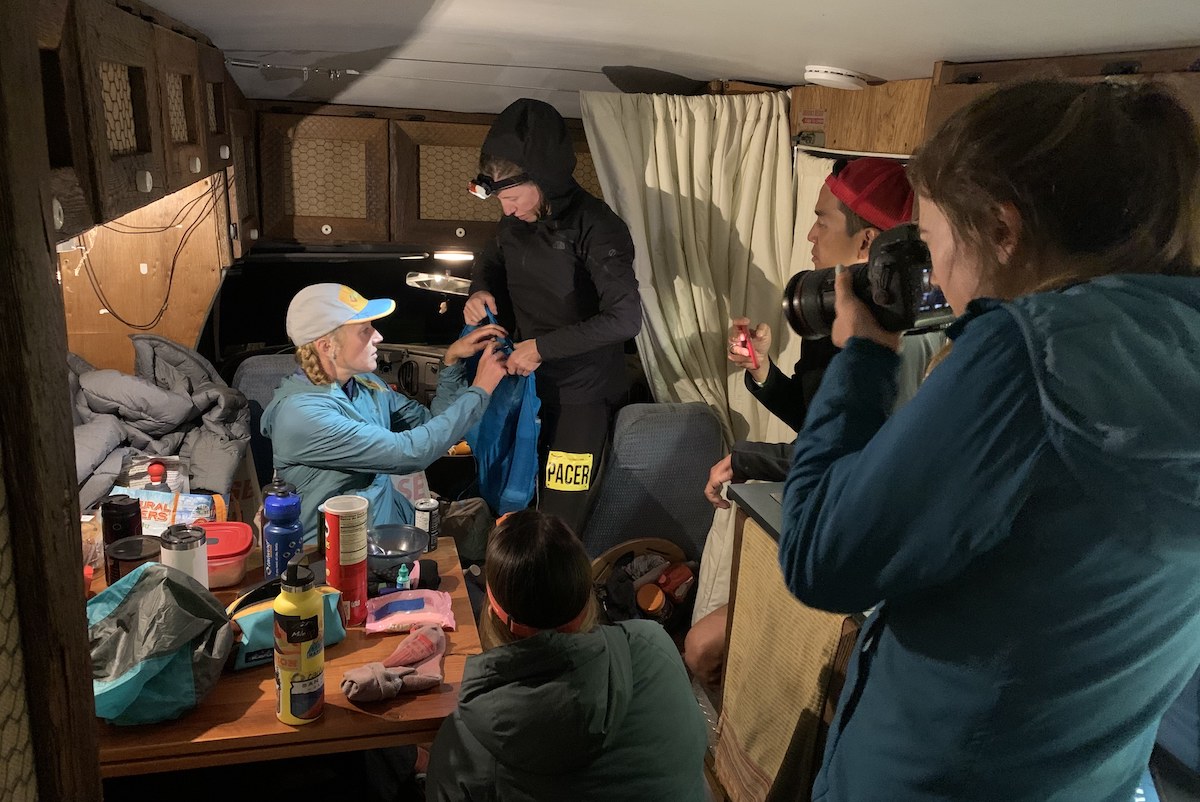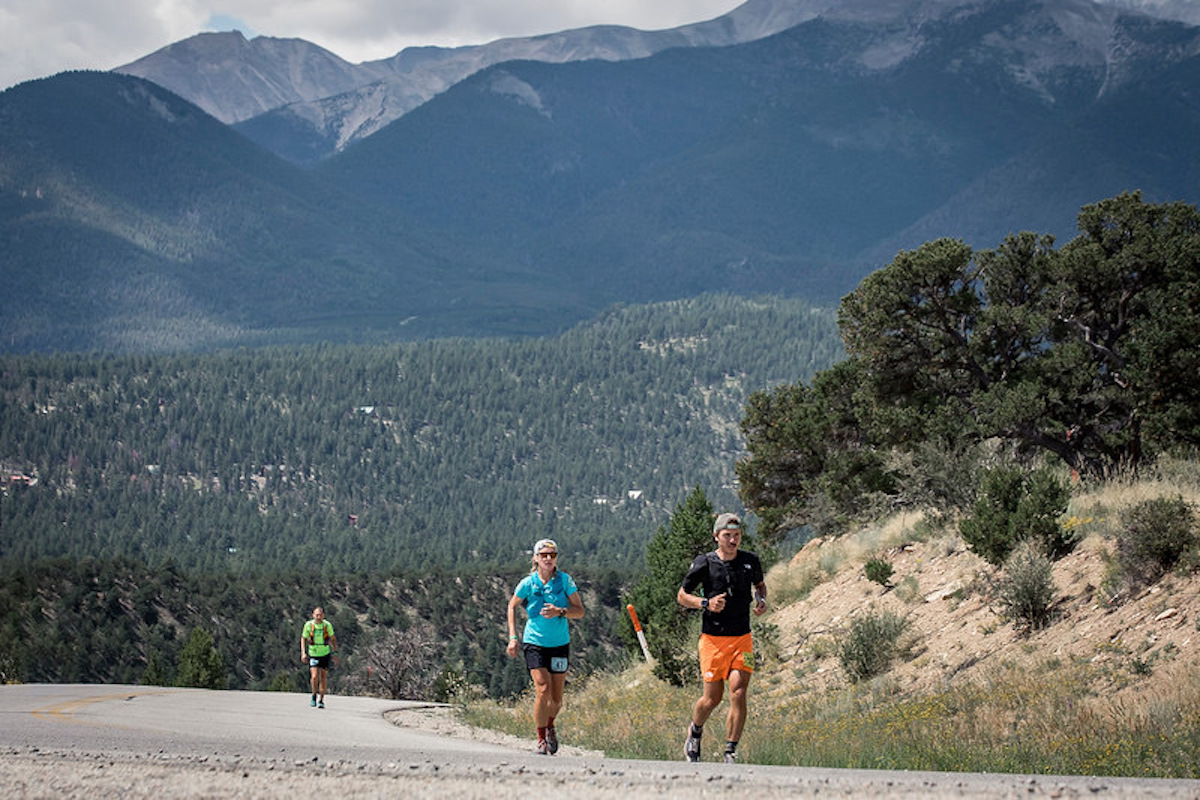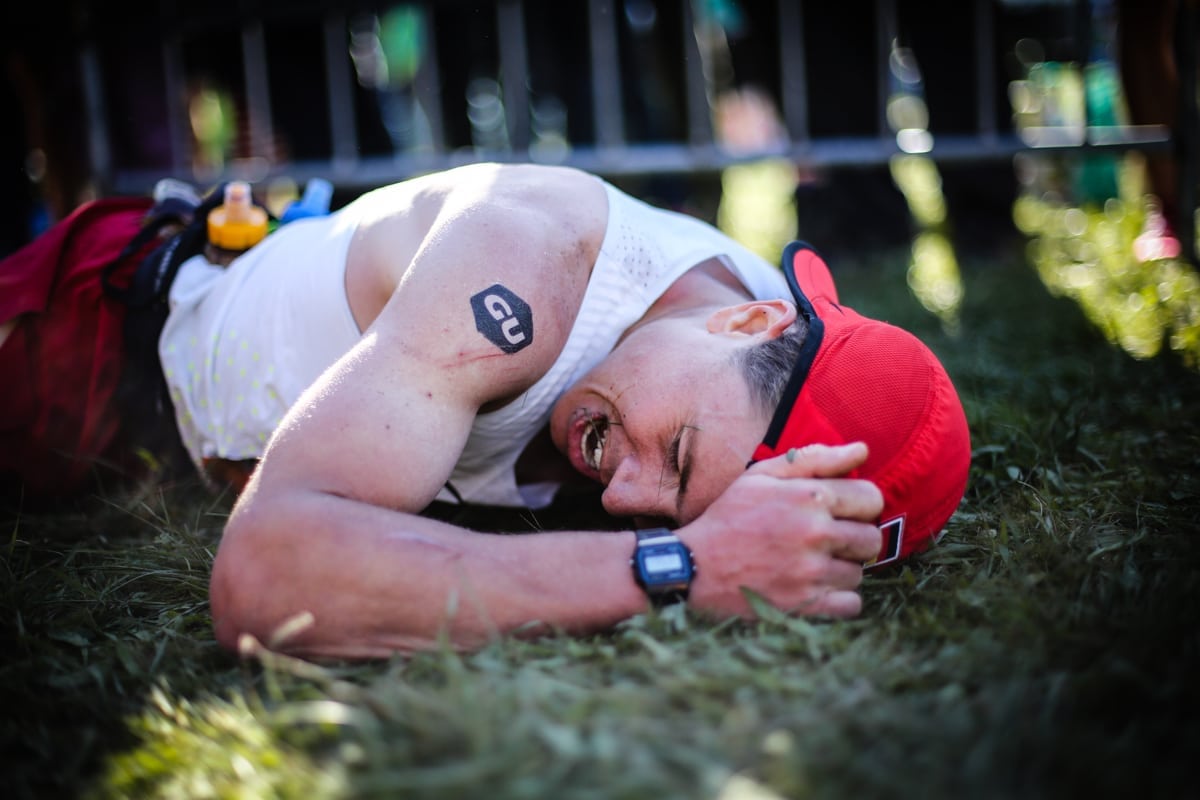If you’ve been around ultrarunning for even just a small amount of time, you’ve likely seen it. Being “over it” is a distinct look.
A runner who is feeling done is easy to spot. They approach an aid station, and as soon as your eyes meet theirs, you see that they have checked out. Maybe not physically. There may be gas in the tank, but mentally, they are done.
They simply do not want to be there anymore. Perhaps their goals feel like a lost cause, or they feel burnt out, or like their heart is no longer in it. It doesn’t matter what the reason is. What matters is how they feel, and how they feel is done.
Done is an awkward space in which to reside. Not only for the athlete, but for the supporters: family, fans, friends, crew, and even the volunteers. Do you cheer, console, or do nothing at all? How do you go about supporting someone in a time like this? This is the conundrum.
For some folks, contact with a person in the midst of despair is fleeting. They connect for a brief moment as they pass through the aid station with an exchange of words, looks, or vibes that may be awkward, but the moment is brief and easily dismissed. Others, however, have a more extended experience with the “over it” runner. The pacer comes to mind.

Maggie (left, in blue) with a number of crew members helping her at the 2021 High Lonesome 100 Mile. Photo: Zach Miller
I have had the privilege of pacing at numerous races over the years. I’ve paced twice at the Western States 100, once at the Hardrock 100, very briefly at the Run Rabbit Run 100 Mile, once at the Leadville 100 Mile, and once at the High Lonesome 100 Mile. Pacers typically take up their duties in the latter half of a race, so it is to be expected that they will collect their runner in a state of disrepair. That said, you don’t always witness your runner in that over-it state.
Of all the people I’ve paced, I feel I’ve only seen half a handful of over-it moments. The first was at Hardrock. My buddy Brandon Stapanowich was in the final miles of the race when I sensed that he was totally done.
I can’t remember what it was that triggered his feeling. I think maybe he tripped and fell. Whatever it was, his mental state was clear as day: Brandon was ready to be done. Despite his feeling, Brandon crushed it and finished sixth that year.
The other time was this past summer when I paced Maggie Guterl at High Lonesome. Pacing duties at High Lonesome were split between Billy Yang, Meghan Hicks, and myself. According to Maggie, she strategically gave me the final miles of the race to prevent me from pushing her too hard too soon and breaking her before the finish line.
Unfortunately, by the time Maggie got to me, her day had already gone south. I could sense that she wasn’t really in the mood to push the pace at all. Sure, she wasn’t giving up, because as she expressed to me on the way to the finish line, her brain doesn’t really know how to do that — and yet, even strong-willed Maggie was kind of over it.
As her pacer, it was hard to know what to do. In the end, I accompanied her. I talked to her. I kept tabs on the time and crunched numbers in my head. Finally, in the final miles, I pushed her hard, and she killed it. But that was a very brief part of our journey; for the majority of our time, we just shared the miles.
Why the long story? Why this rambling about accompanying people through times of being over it? Lately, I have been thinking about how sometimes the most helpful thing to do for someone else in their moment of need is to just be there.
When someone is struggling, we often long to provide them with a solution to their problem. Even though that sounds nice, and may even be desired on some level, deep down, what they need is to feel supported.
We all need someone who will come alongside us and share the miles. This companion doesn’t need to have a magic solution. They can just be there, cheering for them, rooting them on, or maybe saying nothing at all, but speaking volumes with their presence.
Call for Comments
- For all of you out there who love to fix problems, what do you do when someone just needs your presence and encouragement?
- Have you ever been in a situation where you feel completely done and over it?



